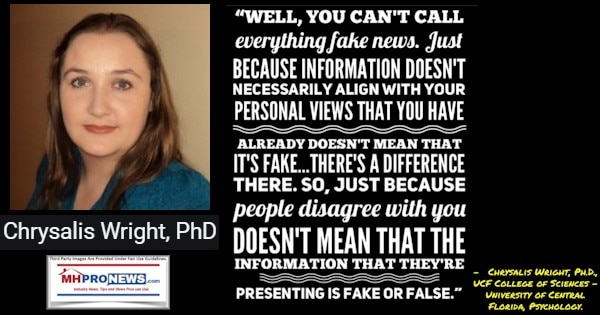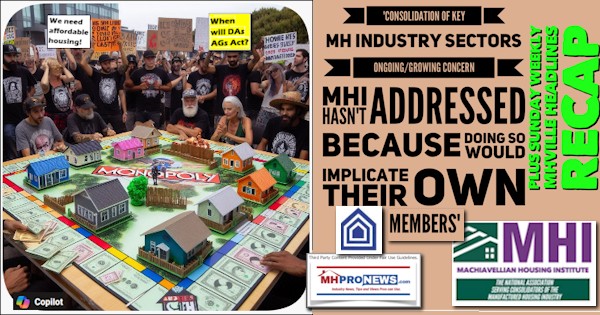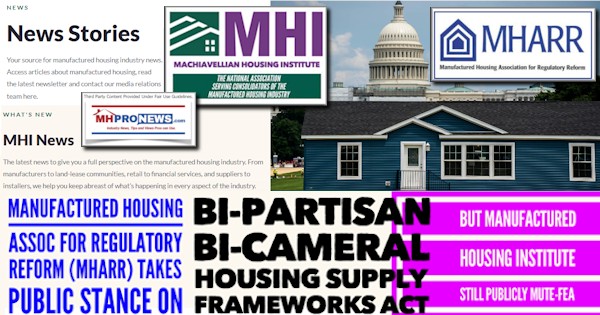
Preface to journalist Rebecca Strong’s report on media consolidation and its impact on society. In curating content from third parties, a few editorial guideposts have proven useful since the earliest days of MHProNews. Sources from both the left, center, and right are sought. Near the apex must be factual accuracy. While the opinions from these sources may or may not reflect our own views on every aspect of a selected topic. Nevertheless, curating from a breadth of reports have proven to stand the test of time. Reports published here, for instance, some 5 or 6 years ago – when checked for accuracy – are routinely still as relevant and reliable as when they were first published. Not all in mainstream media can make that same claim without crossing their fingers behind their respective backs. Against that backdrop, is Rebecca Strong’s report from the news platform that is led by a self-proclaimed life-long Democrat. Strong weaves together information from a range of sources herself, which she cited, posted, and/or linked.
Among the pull quotes below is this one: “Half of investigative journalists said newsworthy stories often or sometimes go unreported because they could hurt the financial interests of their organization, and 61% stated they believe corporate owners exert at least a fair amount of influence on decisions about which stories to cover.” To longtime readers of MHProNews/MHLivingNews, this will be reminiscent of the findings in documentary drama, Shadows of Liberty. What left-leaning Shadows documented a decade ago continues to be an issue today.
Strong cited a 2021 study published in Mass Communication & Society (MCS). “In a 2021 MCS study, more than 30% of editors reported experiencing some form of pressure on the newsroom from their parent company or its board of directors. And 29% said they knew reporters had “self-censored” due to such interference.
Pressured editors admitted to taking a more relaxed approach in reporting practices when interlocked individuals or organizations were the topics of news coverage. They also admitted to lowering their expectations for balance in coverage of board members.”
Strong cited Nolan Higdon, a media studies and history lecturer and author of “The Anatomy of Fake News.”
Strong said: “Higdon told me:
“When most of the news is controlled by six corporations, and Internet traffic is controlled by five or six companies that privilege those companies under the auspices of fighting ‘fake news,’ you can lie with impunity. And worse, because we’re a fragmented audience, if I’m being lied to every single day by The Washington Post, I’m not going to turn on Fox or read The Wall Street Journal to hear I’m being lied to. I’m going to be in my little information bubble.””
Following Strong’s report, which is used by MHProNews with permission, is some additional related information, more MHProNews commentary and related analysis. Beyond that segment of today’s report are our daily business news ‘MHVille’ market report.

6 Companies Control 90% of What You Read, Watch and Hear. Here’s Why You Should Care.
Ever-mounting media consolidation has narrowed the perspectives the public is privy to. Ownership and funding of these corporations are riddled with conflicts of interest and Big Tech companies are outright censoring and demonetizing independent outlets.
“We can have democracy in this country, or we can have great wealth concentrated in the hands of a few, but we can’t have both.” — Supreme Court Justice Louis D. Brandeis
In a recent Twitter survey I conducted, nearly 90% of people rated their trust in mainstream media as either “very low” or “low.” And is it any surprise? Ever-mounting media consolidation has narrowed the perspectives the public is privy to, ownership and funding of these corporations are riddled with conflicts of interest, crucial stories keep suspiciously getting buried and big tech companies are outright censoring and demonetizing independent outlets trying to break through the noise.
The media is supposed to function as a power check — and a means of arming us with vital information for shaping the society we want to live in. It’s never been a more important industry. And it’s never been more at risk. In this series, I’ll tackle each factor threatening the media’s ability to serve our democracy — with input from journalists, media critics, professors and other experts.
On a crisp November day in 2014, as I hustled through Boston’s Downtown Crossing at rush hour, I got a call that would change the course of my career: I was offered my first full-time journalism job, as a tech and startups reporter for a local online outlet called BostInno.
When I look back on that moment and recall the dizzying rush of excitement that set in, I see an idealistic young woman who has yet to understand the way the media machine really works. I wish I could somehow temper her expectations. I wish I could protect her from the crushing disappointment that comes with realizing this industry she’s chosen isn’t what she naively thinks it is.
Not too long before I was hired, BostInno had been acquired by American City Business Journals, the largest publisher of metropolitan business newsweeklies in the U.S. In my early conversations with colleagues, it was apparent they were still adjusting to post-acquisition life.
Sure, there were perks that came with being acquired — but the pressure to hit lofty traffic goals meant writers now had to prioritize certain clickbaity stories over others. Moreover, I distinctly remember a fixation on quantity.
“We can have democracy in this country, or we can have great wealth concentrated in the hands of a few, but we can’t have both.” — Supreme Court Justice Louis D. Brandeis
In a recent Twitter survey I conducted, nearly 90% of people rated their trust in mainstream media as either “very low” or “low.” And is it any surprise? Ever-mounting media consolidation has narrowed the perspectives the public is privy to, ownership and funding of these corporations are riddled with conflicts of interest, crucial stories keep suspiciously getting buried and big tech companies are outright censoring and demonetizing independent outlets trying to break through the noise.
The media is supposed to function as a power check — and a means of arming us with vital information for shaping the society we want to live in. It’s never been a more important industry. And it’s never been more at risk. In this series, I’ll tackle each factor threatening the media’s ability to serve our democracy — with input from journalists, media critics, professors and other experts.
On a crisp November day in 2014, as I hustled through Boston’s Downtown Crossing at rush hour, I got a call that would change the course of my career: I was offered my first full-time journalism job, as a tech and startups reporter for a local online outlet called BostInno.
When I look back on that moment and recall the dizzying rush of excitement that set in, I see an idealistic young woman who has yet to understand the way the media machine really works. I wish I could somehow temper her expectations. I wish I could protect her from the crushing disappointment that comes with realizing this industry she’s chosen isn’t what she naively thinks it is.
Not too long before I was hired, BostInno had been acquired by American City Business Journals, the largest publisher of metropolitan business newsweeklies in the U.S. In my early conversations with colleagues, it was apparent they were still adjusting to post-acquisition life.
Sure, there were perks that came with being acquired — but the pressure to hit lofty traffic goals meant writers now had to prioritize certain clickbaity stories over others. Moreover, I distinctly remember a fixation on quantity.
The Great Media Consolidation continues:
– NYT buys The Athletic
– BuzzFeed buys Complex
– VOX buys GroupNine
– Axel Springer buys Politico
– Dot Dash buys Meredith
– Minute Media buys Player’s TribuneWhat’s next? https://t.co/P435ij5Zxc
— Cristian Nyari (@Cnyari) January 6, 2022
It may go without saying, but the media plays an almost nauseatingly prominent role in our everyday lives, especially here in the United States. In fact, Americans spend an average of 12 and a half hours per day consuming news via the television, Internet, newspapers, magazines and radio.
The media molds our society in a myriad of ways. It tells us which world events deserve our attention. It has the power to affect what we buy. In shaping our opinions on everything from immigration, healthcare, education and the environment to individual political candidates, it can also have significant sway when it comes to elections.
Studies have shown that media coverage sometimes has a strong impact on criminal court decisions, particularly for violent crimes. And by influencing consumers and investors, our current 24-hour real-time news cycle can impact our economic climate, driving the market values of certain industries and companies (this is known as “the CNN effect”).
But have you ever noticed that so much of what you’re reading, seeing and hearing has started to sound — well, exactly the same? You’re not imagining things. There’s even a name for this phenomenon: “the illusion of choice.” We’re presented with what feels like an endless array of options for where to get our news.
But in reality, the information from most of those sources trickles down from the same few conglomerates. Year after year, economic power has become increasingly concentrated across numerous industries — including tech, healthcare, banking, airlines and pharmaceuticals.
In fact, mergers reached a record high of $5.8 trillion in 2021. If you ever took Economics 101, you’re probably well aware that monopolies are great for the providers and bad for consumers — by eliminating competition, they give corporations in control no incentive to improve, innovate, or otherwise meet our needs, desires, and expectations.
So, how did we get here? During the 1940s, the Federal Communications Commission (FCC) adopted a number of rules to limit ownership of multiple local radio stations and television stations, as well as multiple national broadcast networks.
Then in the ‘70s, the FCC banned one company from owning both a newspaper and TV or radio station in the same market. But during the ‘80s, major deregulatory moves made by Congress and the FCC under then-president Ronald Reagan’s administration increased the number of TV stations any single entity could own, triggering a wave of media mergers.
The real kiss of death to local news happened in 1996 when President Bill Clinton signed the Telecommunications Act, which allowed large corporations already dominating the media market to further expand their control via acquisitions and mergers.
Only 3% of Congress voted against this bill, including then-House of Representatives member Bernie Sanders. In the years following, more and more small outlets and stations either got gobbled up by the big guys or outright failed because they simply couldn’t compete with them.
Then, in 2017, the FCC reversed a regulation that opened the floodgates on consolidation even further. That regulation had prevented one company from owning multiple television stations in markets that didn’t have at least eight independent stations and prevented one company from owning both a newspaper and broadcast station or TV and radio station in the same market.
Finally, in 2021, the Supreme Court overturned an appeals ruling asking the FCC to study the potential impact on female and minority ownership in the media industry before loosening restrictions on ownership. At the time, Justice Brett Kavanaugh — who wrote the ruling — claimed that not only was there zero evidence that relaxing these rules would cause any harm, but that consolidation could benefit consumers.
As for the consequences of all this deregulation — whereas 50 companies dominated the media landscape in 1983, that dwindled to nine companies by the 1990s. It got worse from there.
Today, just six conglomerates — Comcast, Disney, AT&T, Sony, Fox and Paramount Global (formerly known as ViacomCBS) — control 90% of what you watch, read, or listen to. To put this into perspective: that means about 232 media executives have the power to decide what information 277 million Americans are able to access. In 2021, the “big six” banked a total of more than $478 billion in revenue. That’s more than both Finland’s and Ukraine’s GDP combined.
The issue extends to print media and radio giants, too: iHeartMedia owns 863 radio stations nationwide, while Gannett owns more than 100 daily U.S. newspapers and nearly 1,000 weeklies.
As the pool controlling the media keeps shrinking, so does the breadth of the information reported. Hence why today’s thousands of news outlets often churn out embarrassingly duplicative content.
One glaring issue with these sweeping regulatory changes is that they passed with little publicity, meaning citizens had little to no opportunity to push back. In fact, a 2003 Pew Research study found that a whopping 72% of Americans heard absolutely nothing at all about changing rules for media ownership. But when asked how they felt about relaxing the rules for how many media outlets corporations can own, far more Americans said they thought it would have a negative impact than a positive one.
According to Jeff Cohen, founder of Fairness and Accuracy in Reporting (FAIR) and RootsAction and author of “Cable News Confidential: My Misadventures in Corporate Media,” the Telecommunications Act progressed largely under the radar.
“The public didn’t vote on it, or know about it,” he told me in an interview. “Conglomeration and the shrinkage of media diversity happened because of backroom legislation and rule-making, out of sight of the public.”
In fact, when a consumer group tried to buy ad space on CNN to criticize the Telecommunications Bill, Cohen says CNN wouldn’t sell them the time. It’s not all that surprising when you consider how powerful Big Media lobbyists are: An OpenSecrets report shows that NCTA – The Internet & Television Association (which represents more than 90% of the U.S. cable market) spent more than $14 million trying to influence government policy in 2021, while Comcast shelled out $13.38 million, putting them both in the top 15 spenders for lobbying.
Not only were Americans kept mostly in the dark about these regulatory moves, but information about their implications may have been intentionally hidden. In 2006, former FCC attorney Adam Candeub claimed the FCC allegedly buried a federal study proving more concentration of media ownership would hurt local news coverage.
Senior managers ordered staff to destroy “every last piece” of the report, according to Candeub. Still, other research has since revealed the same worrisome findings: a 2019 study showed that stations newly acquired by Sinclair increased their focus on national politics by around 25% — at the expense of covering local politics.
Nowadays, there are entire cities and towns across the country with no local coverage. According to a 2018 study, more than 2,000 U.S. counties (63.6%) have no daily newspaper, while 1,449 counties (46%) only have one. Meanwhile, 171 counties — totaling 3.2 million residents — have zero newspapers whatsoever.
These areas are known as “news deserts,” and studies have shown they have fewer candidates running for mayor, lower voter turnout and more government corruption. When citizens are left with a colossal information gap, they’re forced to turn to social media to get their news.
One of the media giants responsible for this trend is Sinclair Broadcast Group, which now owns or operates 185 television stations across 620 channels in 86 U.S. markets. In the above compilation video, the anchors parroting the same exact script about the dangers of “fake news” all worked for Sinclair-owned stations.
While expressing concerns about the negative effects of media consolidation in a 2017 interview with Democracy Now!, former FCC Commissioner Michael Copps called Sinclair the “most dangerous company out there that people have never heard of” due not only to the scope of its control but also its well-known ideological agenda.
In his book “The New Media Monopoly,” the late author Ben Bagdikian asserts that today’s big six have amassed more communications power than was ever wielded by any dictatorship in history. Worse yet, he notes that close-knit hierarchies like these find ways to “cooperate” to keep expanding their power.
“They jointly invest in the same ventures, and they even go through motions that, in effect, lend each other money and swap properties when it is mutually advantageous,” Bagdikian writes.
You know I’m starting to think letting just 15 billionaires own the media wasn’t that great of an idea
— The fed up Chef (@TheChefsGardens) April 6, 2022
Christopher Terry, an assistant professor of media law at the University of Minnesota, started his career in the radio industry as a producer for Hearst and ClearChannel in the mid-’90s — during the height of this consolidation frenzy.
“I saw what it did for the stations that I worked for, and I didn’t like it,” he told me in an interview.
Terry had been working for a conservative talk station in Milwaukee when it was acquired by ClearChannel, triggering drastic staff cuts.
“Prior to consolidation, we were a legitimate source with a fully operational newsroom,” he explained. “I didn’t necessarily agree with our politics all the time, but I liked that it was focused on the things people need information about, and it had local ties. It was an operation that was contributing to the public good.”
Experts like Terry and Cohen will tell you there are numerous reasons why media consolidation is bad for our democracy. In the documentary “Is The Press Really Free?” sociology professor and former Project Censored director Dr. Peter Phillips points out that as a direct result of the staff cuts caused by consolidation, reporters often become increasingly dependent on PR people for stories.
He calls this a form of structural censorship — when a large portion of the news has been pre-written by a PR professional who works for a public or private bureaucracy, that means the stories are spun to meet the needs of corporations or the government in advance.
Nolan Higdon, a media studies and history lecturer and author of “The Anatomy of Fake News,” also notes that this concentration of power has meant fewer checks and balances — without the pressure that comes with competition, conglomerates aren’t likely to be challenged for their questionable practices.
Higdon told me:
“When most of the news is controlled by six corporations, and Internet traffic is controlled by five or six companies that privilege those companies under the auspices of fighting ‘fake news,’ you can lie with impunity. And worse, because we’re a fragmented audience, if I’m being lied to every single day by The Washington Post, I’m not going to turn on Fox or read The Wall Street Journal to hear I’m being lied to. I’m going to be in my little information bubble.”
As these media corporations continue to expand their power, they rake in ever-growing profits — which then translates to more political influence. Not only do owners of media giants contribute money directly to campaigns, but their outlets control the discourse around them. And the larger the conglomerate, the more easily and effectively they can lobby to kill regulations and pass laws that further their domination.
But this consolidation of power extends beyond just monopolies and mergers galore — compounding the issue are shared board members. All media corporations have a board of directors, which is responsible for making decisions that support the interests of stakeholders.
When someone sits on the board at multiple companies, that creates an “interlock.” Scroll through The New York Times board of directors, for example, and you’ll find a certain member is also on the board for McDonald’s and Nike and is chairman of Ariel Investments. Up until last year, a Disney chairwoman happened to be on the board for private equity giant The Carlyle Group.
A 2021 study published in Mass Communication & Society (MCS) revealed that publicly traded American newspaper companies were interlocked by 1,276 connections to 530 organizations. The data showed that about 36% of these connections were to other media organizations, 20% to advertisers, 16% to financial institutions, 12% to tech firms and 2% to government and political entities.
More specifically, a 2012 list compiled by FAIR revealed the following interlocks:
- CBS/Viacom: Amazon, Pfizer, CVS, Dell, Cardinal Health and Verizon
- Fox/News Corp: Rothschild Investment Corporation, Phillip Morris, British Airways and New York Stock Exchange
- ABC/Disney: Boeing, City National Bank, FedEx and HCA Healthcare
- NBC: Anheuser-Busch, Morgan Chase & Co., Coca-Cola and Chase Manhattan
- CNN/TimeWarner: Citigroup, American Express, Fannie Mae, Colgate-Palmolive, Hilton Hotels, PepsiCo, Sears and Pfizer
- The New York Times Co: Johnson & Johnson, Ford, Texaco, Alcoa, Avon, Campbell Soup, Metropolitan Life and Starwood Hotels & Resorts
(And those are just a few examples of the more than 300 crossovers FAIR discovered.)
Some say it would be naive not to suspect that interlocking directorates don’t cause a major conflict of interest — allowing news content to potentially be shaped by profit-driven motives. As former Walt Disney chief executive Michael Eisner put it in an infamous leaked internal memo:
“We have no obligation to make history. We have no obligation to make art. We have no obligation to make a statement. To make money is our only objective.”
As it turns out, there’s evidence to legitimize this concern. In a 2021 MCS study, more than 30% of editors reported experiencing some form of pressure on the newsroom from their parent company or its board of directors. And 29% said they knew reporters had “self-censored” due to such interference.
Pressured editors admitted to taking a more relaxed approach in reporting practices when interlocked individuals or organizations were the topics of news coverage. They also admitted to lowering their expectations for balance in coverage of board members.
Higdon noted that it can be especially problematic when media board members also happen to sit on the boards of defense companies — because such an interlock can lead to an increasing push for pro-war narratives. (As of 2011, before U.S. troops withdrew from Iraq, Raytheon interlocked with The New York Times, and Lockheed Martin interlocked with The Washington Post).
The Intercept’s recent video of a White House Press briefing on the Ukraine-Russia conflict illustrates this perfectly. In the video, members of the media are shown repeatedly asking questions framed around why President Biden isn’t providing Ukraine with more military support.
If you know what questions they’re asking, you can pretty much guess what angle their story will be taking. And in this case, every journalist is laser-focused on what needs to happen to escalate this into U.S. war involvement with Russia. The Intercept’s Ryan Grim is quite literally the only member of the media asking what the U.S. is doing to encourage negotiations for peace.
What makes all this particularly troublesome is the lack of transparency.
A 2021 MCS study found that interlocks between newspapers and other companies were only disclosed to readers about half of the time, and never appeared in articles published by certain conglomerates, like Gannett and Digital First.
The Society of Professional Journalists, along with most respectable media organizations, has a code of ethics. That includes avoiding conflicts of interest whenever possible and revealing them when they’re unavoidable. Sometimes, when a writer initially neglects to do this and they’re called out for it, they’ll update the article after publication.
For instance, a 2016 Business Insider article singing Jeff Bezos’ praises for “revitalizing” The Washington Post now includes an important addition: “Jeff Bezos is an investor in Business Insider through his personal investment company Bezos Expeditions. An earlier version of this article failed to disclose this in an editorial error.” (While we’re on the subject of transparency — a disclosure: I write for Insider.)
But that particular case seems to be an exception to the rule. According to Higdon, the outlets at large don’t typically disclose conflicts of interest in the way writers are expected to.
“When you hear that the title of a channel is ‘Russia Today,’ it’s very clear that the Russian government is funding it,” Higdon explained. “It’s right in your face. But when I turn on CNN, I don’t know who’s funding that network. I have to do some digging to figure it out.”
In a 2003 Columbia Journalism Review (CJR) report, author Aaron Moore expressed concerns that independent reporting could be undermined when a board member is linked to other businesses that its newsrooms cover. According to Higdon, most journalists adamantly claim no one tells what to write and what not to write. But whether they know it or not, he says many may engage in a form of self-censorship: skipping certain stories in order to avoid getting fired.
In a 2000 Pew Research and CJR survey of more than 300 journalists at local and national outlets, 41% admitted to either purposely avoiding newsworthy stories, “softening the tone” of stories to benefit the interests of their news organizations, or both. Half of investigative journalists said newsworthy stories often or sometimes go unreported because they could hurt the financial interests of their organization, and 61% stated they believe corporate owners exert at least a fair amount of influence on decisions about which stories to cover.
Here’s how this form of self-censorship works. Say you work for ABC, but you want to pursue an investigative report on the labor practices of Disney — which owns ABC.
“You know you’re risking your job at ABC, so you may stay away from it,” explained Higdon. “Also, there are organizational studies on the ways that they institutionalize these policies. So, it’s not that ABC says, ‘you can’t report on that story about Disney.’ It’s that once you pitch the story on Disney or collect initial interviews, the editor says something like, ‘yeah, we don’t think that story is interesting enough. We’d rather have you cover this instead.’”
While some intervention from media owners is direct, most of it is subtle and subconscious, according to Bagdikian — like when writers learn to conform to their owner’s ideologies in order to ensure they aren’t overlooked for a raise or a promotion.
“Corporations have multimillion-dollar budgets to dissect and attack news reports they dislike,” writes Bagdikian. “But with each passing year, they have yet another power: They are not only hostile to independent journalists. They are their employers.”
Case in point: A 1991 FAIR investigation revealed that General Electric (GE) — which owned NBC from 1986 to 2009 — designed, manufactured, or supplied parts for essentially every major weapon system the U.S. military used during the Gulf War. In other words, as the authors stated, when NBC brought on correspondents and consultants to praise the performance of U.S. missiles, bombers and spy satellites, they were applauding products made by the corporation cutting their paychecks.
During the time that GE owned NBC, there was plenty of evidence that the news outlet was underplaying big stories about its parent company — particularly around GE plants dumping hazardous chemicals into the Hudson River, and safety issues in GE-designed nuclear power plants.
In their book “Unreliable Sources: A Guide to Detecting Bias in News Media,” Martin Lee and Norton Solomon detailed how GE insisted that an NBC program remove any references to GE in reports on substandard products. NBC also seemed to shy away from exposing GE’s poor environmental record and banned televised commercials urging a boycott of GE products.
NBC also remained mysteriously silent on the bombshell story that GE didn’t pay federal taxes in 2010. Apparently, the network thought the addition of “OMG” and “muffin top” to the Oxford English Dictionary was more of a newsworthy priority at the time.
Vermont senator Bernie Sanders has been an early and frequent critic of media consolidation. Like Sanders, Victor Pickard — a professor of media policy and political economy at the University of Pennsylvania’s Annenberg School for Communication and author of “Democracy Without Journalism?: Confronting the Misinformation Society,” argues that as a result of this consolidation, we may miss out on pivotal issues because we’re only exposed to topics that serve those corporations in control.
Pickard told me in an interview:
“There are a number of important issues that are given too little attention in our mainstream news media. Oftentimes this isn’t a direct consequence of corporate censorship but instead what might be called ‘market censorship.’ These issues do not attract the eyeballs that advertisers covet or generate the revenues that owners and investors privilege above all else. Consequently, issues like climate change, mass incarceration and other structural inequalities do not get nearly as much coverage as, say, the latest celebrity scandal.”
Cohen adds that for all the discussion of systemic racism, there’s very little exploration or analysis of the actual system in place fueling the exploitation — especially when the finger of blame might point to powerful corporate forces.
Cohen said:
“That’s why coverage of racial injustice is so often victims, without victimizers. Not surprisingly, victimizers are often powerful sponsors of the news — banks, big pharma and healthcare and oil and gas corporations. If Sanders had not run for president twice, how often do you think class inequality would have been in the news?
“Or CEO compensation compared to the average worker? Or the fact that roughly 70 or 80 million people in our country were uninsured or underinsured even when Obamacare was at its peak performance? Or the wealth of big pharma execs while people can’t afford medicines?”
The mission of Project Censored, a media watchdog nonprofit founded at Sonoma State University in 1976, is to shed a much-needed spotlight on these underreported issues. Since 1993, the organization has published an annual book of the top stories that were ignored or misrepresented that year titled “Censored: The News That Didn’t Make the News.”
The 2021 edition includes the following:
- YouTube inexplicably demonetized independent news sourcesor removed entire videos or channels without any explanation as to how/why they violated community guidelines.
- A study showed that corporate media consistently sidelined independent health expertsduring the COVID-19 pandemic, instead featuring mostly government appointees as guests.
- A report revealed journalists investigating financial crimesare being threatened by global political and business elites.
- A study found that more than 1.1 million seniors on Medicare could die prematurelyover the next decade simply because of the astronomical costs of prescription medications. This would make unaffordable drugs a leading cause of death in the U.S., ahead of diabetes, influenza, pneumonia and kidney disease by 2030.
- A report alleged that Google hired an outside firmto collect personal data on its employees — a surveillance effort that was aimed at preventing them from unionizing.
- Dangerous newly proposed domestic terrorism lawscould be used to “repress legitimate political protest and to target activists and religious or ethnic minorities.”
- An investigation is uncovering mounting evidence that Black men are being specifically targeted by police dogs.
If none of these stories ring a bell, maybe it’s time to ask yourself why the corporate media didn’t deem them worthy of coverage. Mainstream outlets will often cite time constraints as an excuse for why they’re failing to tackle crucial stories.
But is it possible that maybe their silence is by design? After all, in 2021, they apparently had ample time to report on the murder investigation for a travel blogger, gossip about Melania Trump and a maskless Rudy Giuliani leaving a New Year’s Eve party. (And don’t get me started on the Oscars #SlapGate.)
In 2017, Senator Sanders wrote that the more important the issue is to the working class masses, the less interesting it is to corporate media. But if we aren’t leveraging the press to put pressure on the legal system, how can it ever fulfill its potential for driving positive change?
That’s the question Mickey Huff — director of Project Censored, president of the Media Freedom Foundation, and co-author of “United States of Distraction: Media Manipulation in Post-Truth America (and what we can do about it)” — asked me toward the end of our interview. “How do we get people informed? And to understand the problems? That’s why journalism matters. It does matter what they do and don’t report.”
Reversing the aggressive media consolidation would require undoing decades of legislation that loosened restrictions on ownership. That probably won’t happen in the immediate future. So, as journalist and media commentator Jim Fallows wrote in 2005: “The remaining hope is to acknowledge the existence of this disorder and use that knowledge to offset or limit its most damaging effects.”
As with any problem, recognizing that it exists is the first step to handling it. And all hope is not lost, because remember: you get to choose where you get your information. Across the board, experts recommend deliberately seeking out independent, nonprofit news channels.
Just a few of these organizations that don’t accept corporate backing or funding from advertising include Democracy Now!, FAIR, ProPublica, Media Roots, The Lever, MintPress News, Truthout, The Conversation, The Nation, The Intercept, The Grayzone, Citizen Truth and Common Dreams.
“It’s not healthy to be so cynical about it that you give up,” added Huff. “And turning off corporate media is only one step. But I would argue that once you’re media literate, you need to watch it to understand why everyone else is walking around like a zombie repeating the same thing.”
As Jim Morrison once said, “whoever controls the media controls the mind.” Taking that into consideration, it’s high time to ask yourself: who are you granting the power to control your mind? And given that any profit-making company’s ultimate goal is to make money, how might their motives mean keeping you distracted or in the dark?
[…to be continued.]
Originally published on Rebecca Strong’s Down The Rabbit Hole Substack page.
The views and opinions expressed in this article are those of the authors and do not necessarily reflect the views of Children’s Health Defense.
“6 Companies Control 90% of What You Read, Watch and Hear. Here’s Why You Should Care.” © 4.15.2022 Children’s Health Defense, Inc. This work is reproduced and distributed with the permission of Children’s Health Defense, Inc. Want to learn more from Children’s Health Defense? Sign up for free news and updates from Robert F. Kennedy, Jr. and the Children’s Health Defense. Your donation will help to support us in our efforts. ##
Additional Information, More MHProNews Analysis and Commentary in Brief
When someone involved in manufactured housing wonders why news they may have personal awareness about is reported as it is, look no further than the insights Strong shared, along with those that follow or are linked.
- There are several studies that indicate that there are fewer reporters seeking to cover the same or greater number of stories.
- Topics have to be prioritized among fewer reporters.
- How a possible report bumps up against an advertiser/sponsor is deemed an important factor.
- Political ideologies of key players in management, the board, and ownership influences decisions deemed political in nature, and what today isn’t being politicized?
- Despite the hit above on Sinclair, where award-winning independent journalist Sharyl Attkisson hangs her programing hat, Attkisson has stressed that the money trail and fact checks are necessary on every report.
- Another quoted item posted in many of our Daily Business News market reports on MHProNews is from media instructor Chrysalis Wright. Professor Wright aptly said that not all news is fake news. Balance must be sought between left and right leaning media.
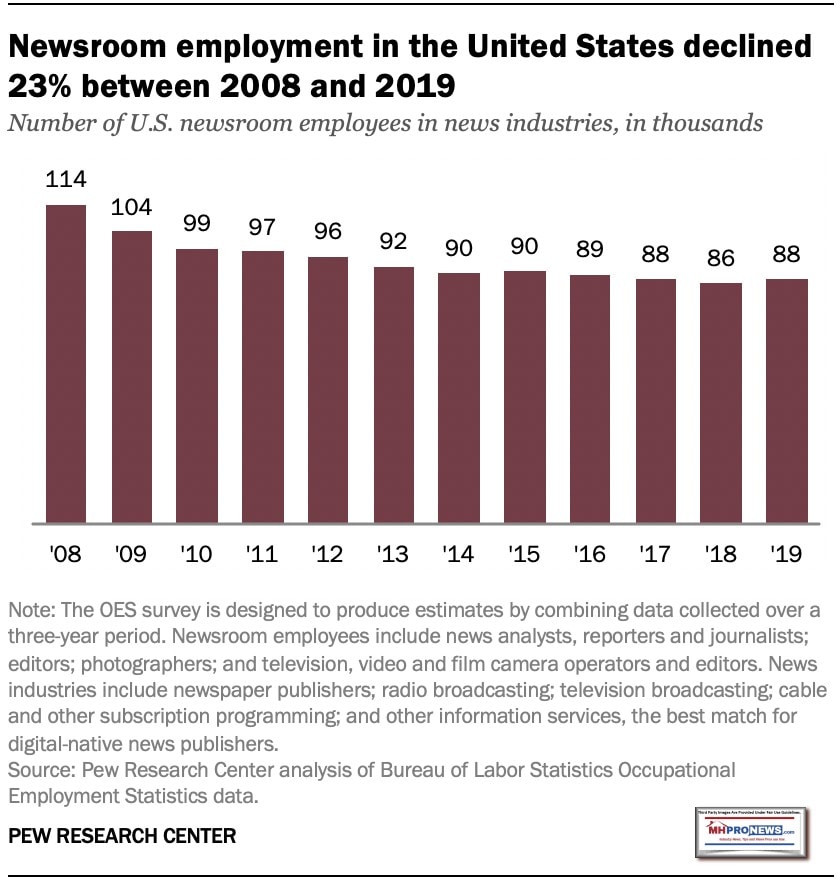
Manufactured housing is at its essence an easy-to-understand topic. But to get to the point of clarity and simplicity, once must first dig through details that are often obscured, deceptive, or are misleading intentionally in order to mask agendas and performance.
Strong’s report is useful because it updates and confirms insights posted in the reports linked below. To learn more about her core topic on media agendas and how a few control the bulk of what is deemed ‘news,’ see those linked reports.
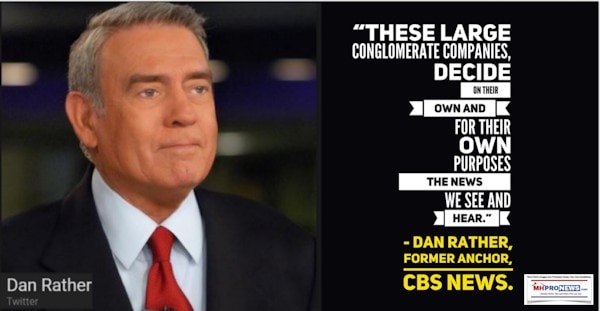
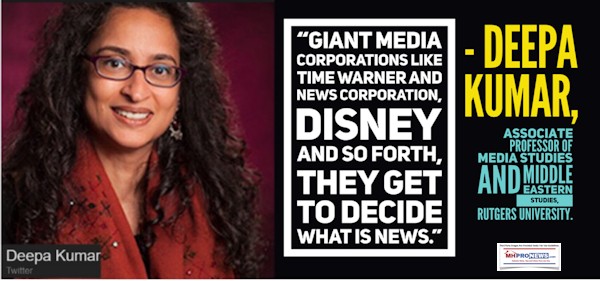
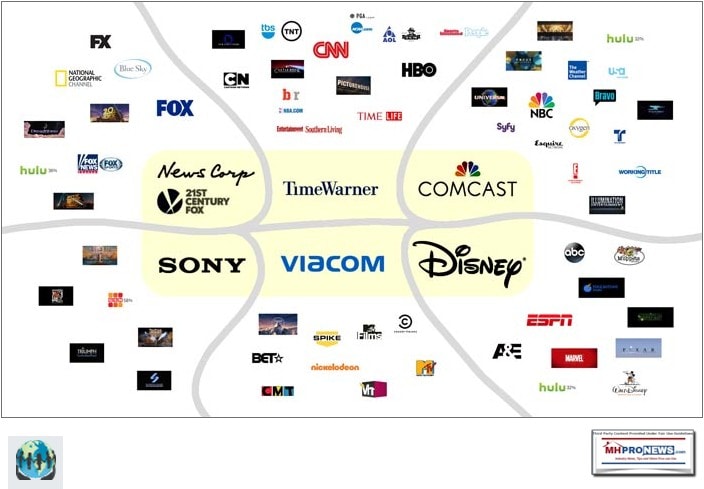
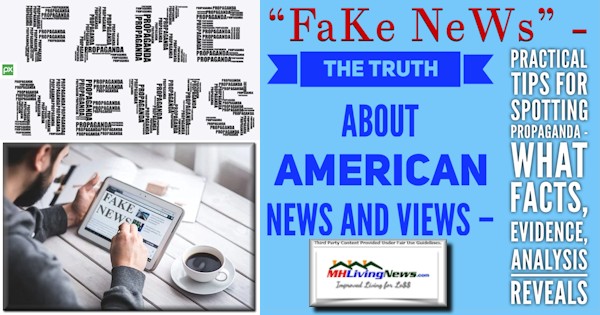

Next up is our daily business news recap of yesterday evening’s market report, related left-right headlines, and manufactured housing connected equities.
The Business Daily Manufactured Home Industry Connected Stock Market Updates. Plus, Market Moving Left leaning CNN and Right-leaning (Newsmax) Headlines Snapshot. While the layout of this daily business report has been evolving over time, several elements of the basic concepts used previously are still the same. For instance. The headlines that follow below can be reviewed at a glance to save time while providing insights across the left-right media divide. Additionally, those headlines often provide clues as to possible ‘market-moving’ news items.
Market Indicator Closing Summaries – Yahoo Finance Closing Tickers on MHProNews…
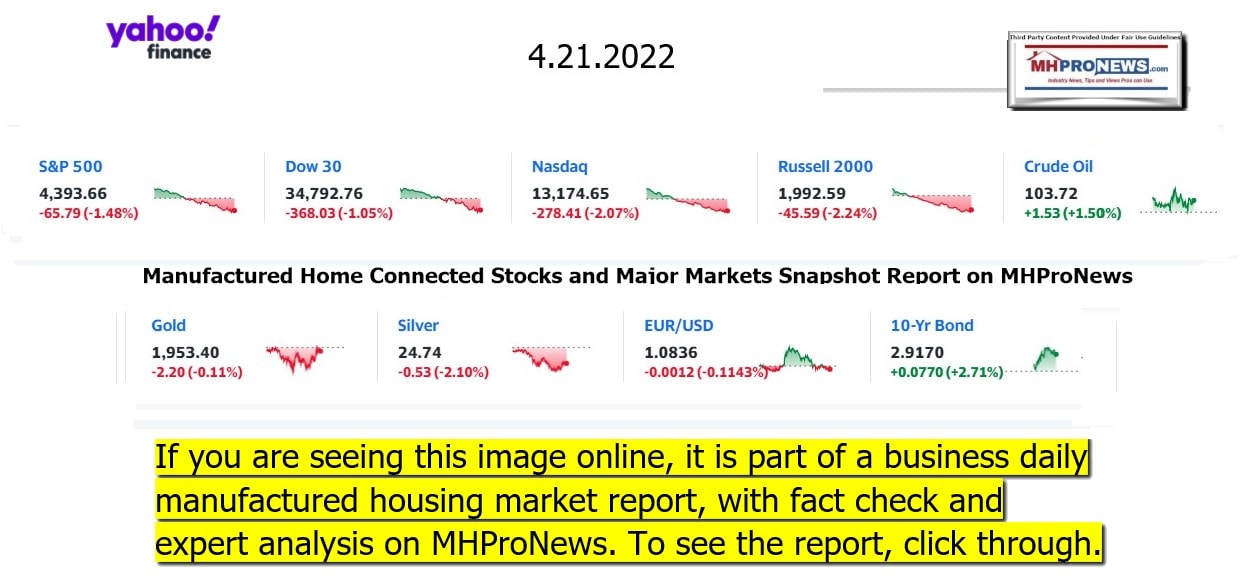
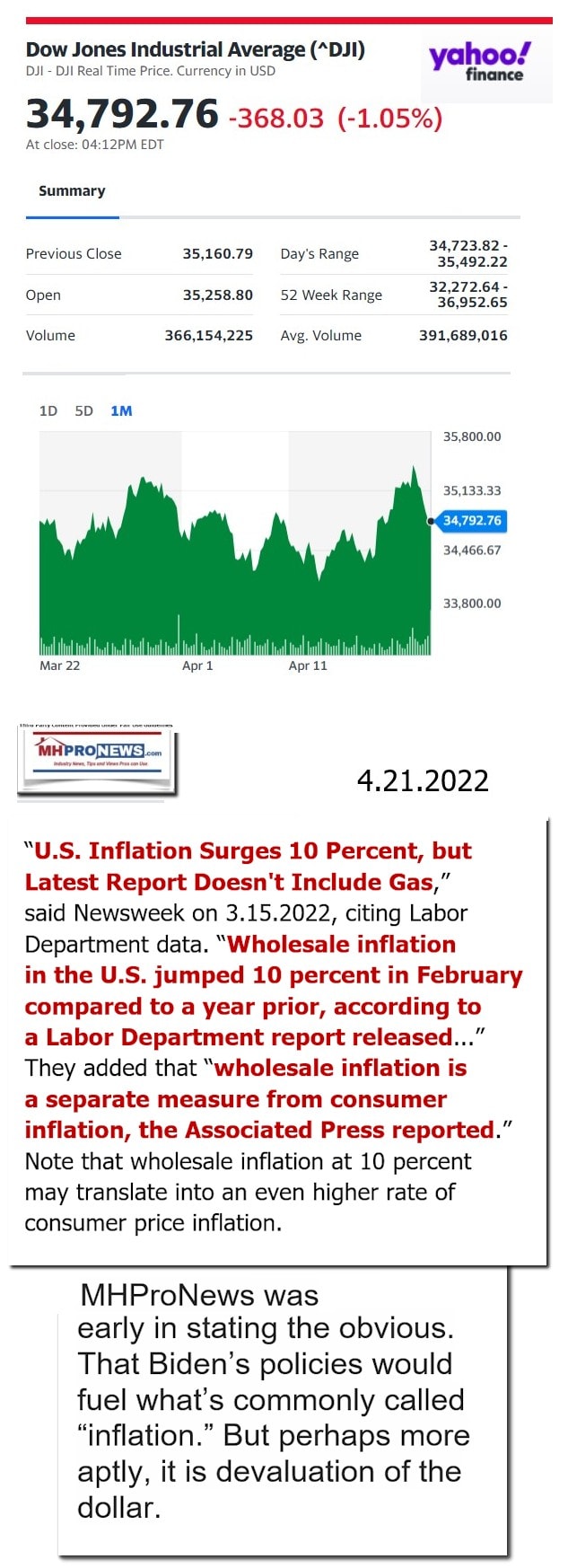
Headlines from left-of-center CNN Business – from the evening of 4.21.2022
- Fed watch
- Jerome Powell.
- Chairman Powell: A half-percentage point interest rate hike is ‘on the table’ for May
- Buckle up: The Fed is about to get tough on inflation
- Elon Musk says he has lined up $46.5 billion in financing for a Twitter takeover deal
- Why Tesla’s stock is still defying gravity
- Tesla shareholders try to get Elon Musk to just stop
- Opinion: We shouldn’t trust Musk’s plans to transform Twitter
- World’s biggest food company has hiked prices by 5%
- Ackman gives up on Netflix, taking $400 million loss as shares tumble
- Carl Icahn slams McDonald’s over animal welfare practices in fiery letter to investors
- After two years of losses, airlines expect record revenue
- Volkswagen is coming for Tesla. Here’s how it plans to dominate the US market
- CNN+ will shut down at the end of April
- MOSCOW, RUSSIA – OCTOBER 03: President of the Russian oil company Lukoil Vagit Alekperov attends the “Maintaining Energy Connectivity in an Unstable World” session within the Russian Energy Week International Forum in Moscow, Russia on October 03, 2019.
- The head of Russia’s second biggest oil company has quit
- In this image taken with a drone, new townhouses are shown in Valencia, Pa., on Thursday, Oct. 15, 2020.
- Mortgage rates just hit a 12-year high
- DeSantis vs. Disney: Homophobia and hate are beneath the surface of high-minded, right-wing talking points
- ELECTRIC VEHICLES
- BMW reveals its new $120,000 electric flagship
- Toyota finally has an EV and it’s perfectly OK
- Honda joins electric car race with $40 billion investment
- Volkswagen’s bus is finally back. And now it’s electric
- The GMC Hummer EV is a brilliant execution of a terrible idea
- INVESTING
- An aerial photo taken on April 18, 2022 shows a large number of export vehicles waiting to be loaded at The port of Yantai, East China’s Shandong Province. According to preliminary calculations released by the National Bureau of Statistics, China’s GROSS domestic product (GDP) in the first quarter was 2,7017.8 trillion yuan, up 4.8% year on year.
- IMF says Russia’s war in Ukraine will ‘severely set back’ global economy
- Netflix’s collapse is a warning sign for stocks
- The magic is gone for Disney investors
- Bank earnings signal dark clouds on the horizon
- Banks say they’re getting tough on coal, but they keep lending trillions to polluters
Headlines from right-of-center Newsmax 4.21.2022
- Kentucky Abortion Law Is Blocked in Temporary Win for Clinics
- Russian Invasion of Ukraine
- Zelenskyy: Ukraine Needs $7B a Month to Make Up for War’s Toll
- Biden Bans Russian Ships From US Ports
- Biden Announces $800M More Security Assistance for Ukraine
- Russian Troops Raise Red Victory Flags in Ukrainian Towns
- Russian Embassy Denies Recruiting Ethiopians for Ukraine War
- Russian-Linked Ships Banned From US Ports
- Russia Preparing Secessionist Referendums in Conquered Areas
- Kremlin: Still Waiting for Ukraine Response to Latest Proposals
- Putin Tries to Claim Mariupol Win but Won’t Storm Holdout
- G7 Finance Ministers Pledge Over $24B to Ukraine
- G20 Members Condemn Russia After Yellen, Others Stage Walkout
- US Agencies, Cybersecurity Allies Issue New Kremlin Warning
- More Russian Invasion of Ukraine
- Newsmax TV
- Rick Allen: Biden Energy Policies Bring Pain to US | video
- Sessions: Biden, Dems, ‘Invited’ Migrant Surge | video
- Ukraine MP Goncharenko: Putin ‘Lying’ About Mariupol Win | video
- Kash Patel: Filings Show Clinton Camp ‘Taking Aim at Each Other’ | video
- Oz: Time for Americans to “Get Back to Reality’ on COVID | video
- Bill O’Reilly: WH Chief of Staff ‘Calling the Shots,’ Not Biden | video
- More Newsmax TV
- Newsfront
- Legislature Votes to Strip Disney Self-Govt
- The Florida House of Representatives on Thursday gave final passage to a bill that would dissolve Walt Disney World’s private government…. [Full Story]
- US Contracts 30M Barrels of Oil From Strategic Reserve
- The U.S. Department of Energy said Thursday it has awarded contracts [Full Story]
- CNN+ Shutting Down, Just Weeks After Its Debut
- CNN’s brand-new streaming service, CNN+, is shutting down only a [Full Story]
- Elon Musk Made Fortune With Government Aid
- Elon Musk repeatedly has claimed he doesn’t want any help from the [Full Story] | Platinum Article
- Ohio Poll: Trump Hurls Vance to 7-Point Lead in Primary
- If anyone what wondering what an endorsement from former President [Full Story] | video
- Kentucky Abortion Law Blocked in Temporary Win for Clinics
- A federal judge on Thursday temporarily blocked a state law that [Full Story]
- US Needs More Tactical Nuclear Weapons, but Will Congress Start Building Them?
- The United States’ woeful stockpile of tactical nuclear weapons pales [Full Story] | Platinum Article
- Report: Donald Trump Jr. Expected to Meet With Jan. 6 House Committee
- Donald Trump Jr. will soon meet with the House select committee [Full Story]
- Biden Bans Russian Ships From US Ports
- President Joe Biden announced on Thursday the United States will ban [Full Story]
- JD Vance to Newsmax: Trump ‘Converts’ Are His ‘Best Defenders’
- After getting the coveted endorsement from former President Donald [Full Story] | video
- Related
- Jim Renacci to Newsmax: Trump Wants a ‘Gov. Renacci, Not Gov. DeWine’ |video
- JD Vance to Newsmax: ‘I Don’t Trust These People’ in DC on Russia-Ukraine |video
- Trump Ridicules Decision to Shutter CNN+
- Former President Donald Trump Thursday ridiculed the Warner Bros. [Full Story]
- 13 Nassar Victims Seeking $130M From FBI Over Bungled Probe
- Thirteen sexual assault victims of Larry Nassar are seeking $10 [Full Story]
- Zelenskyy, Liz Cheney to Receive JFK Profile in Courage Award
- Ukrainian President Volodymyr Zelenskyy, Rep. Liz Cheney, R-Wyo., and [Full Story]
- Trump Knocks New York AG James While Mocking Piers Morgan TV Interview
- Former President Donald Trump had more to say about the fallout of [Full Story]
- Fed’s Powell: Half-Point Rate Increase ‘On the Table’
- A half-point interest rate increase will be “on the table” when the [Full Story]
- McCarthy Denies Saying He Would Have Advised Trump to Resign If Impeached
- House Minority Leader Kevin McCarthy, R-Calif., is denying that he [Full Story]
- Musk Secures $46.5 Billion to Buy Twitter
- Elon Musk has secured a $46.5 billion financing commitment to acquire [Full Story]
- UK Lawmakers OK Probe into PM Boris Johnson’s Alleged Lies
- British lawmakers on Thursday ordered a parliamentary investigation [Full Story]
- 13 Nassar Victims Seek $130M From FBI for Bungled Probe
- Thirteen sexual assault victims of Larry Nassar are seeking $10 [Full Story]
- Alex Jones Requests Immunity for Jan. 6 Testimony
- Infowars host Alex Jones is requesting immunity from prosecution from [Full Story]
- US Supreme Court Backs Biden on Denying Federal Benefit to Puerto Rico
- Congress can prevent people in the U.S. territory of Puerto Rico from [Full Story]
- 30-Year Mortgages Hit 5.11%, Highest Rate in 12 Years
- Long-term U.S. mortgage rates rose for the seventh straight week, [Full Story]
- Trump Slams Piers Morgan’s ‘Doctored’ Interview
- Donald Trump is blasting Piers Morgan for being part of the “fake [Full Story]
- US Launching Program to Admit Ukraine Refugees, but Not Through Mexico
- The Biden administration is making it easier for refugees fleeing [Full Story]
- US Extends COVID Vaccine Requirements for Noncitizens at Land Borders
- The Biden administration said Thursday it is extending a requirement [Full Story]
- Biden Drug Control Plan Stresses Harm Reduction, Treatment
- President Joe Biden is sending his administration’s first national [Full Story]
- US Weekly Jobless Claims Decline Moderately
- The number of Americans filing new claims for unemployment benefits [Full Story]
- FAA to Review Parachute Stunt That Triggered Capitol Evacuation
- The Federal Aviation Administration says it’s reviewing an apparent [Full Story]
- Cook Political Report: 27 Democrat House Seats in Toss-Up Territory
- With his public approval rating hovering in the mid- to low-40s, and [Full Story]
- US Resists Calls to Reopen Embassy in Kyiv
- The Biden administration is so far balking at calls to reopen the [Full Story]
- South Carolina Court Halts First Firing-Squad Execution in US Since 2010
- South Carolina’s Supreme Court on Wednesday temporarily halted the [Full Story]
- Incredible Miniature Telescope Lets You See for Miles
- Starscope
- More Newsfront
- Finance
- Fed’s Powell: Half-Point Rate Increase ‘On the Table’
- A half-point interest rate increase will be “on the table” when the Federal Reserve meets on May 3-4 to approve the next in what are expected to be a series of rate increases this year, Fed Chair Jerome Powell said Thursday…… [Full Story]
- Gucci in Focus as China Lockdowns Weigh on Kering Q1 Sales
- Zelenskyy: Ukraine Needs $7B a Month to Make Up for Invasion Losses
- US May Lower Chinese Import Tariffs to Offset Inflation
- US, NY Sue MoneyGram for Unfair Remittance Transfers
- More Finance
- Health
- Where You Still Need to Wear a Mask in the US
- Airlines and airports, the ride-sharing company Uber and national train service Amtrak, are now lifting mask mandates that have been in place for more than a year…. [Full Story]
- Doctors Warned to Look for Hepatitis in Children as Probe Widens
- Researchers Identify Bacteria Linked to Aggressive Prostate Cancer
- Study: Intermittent Fasting Not More Effective Than Calorie-Cutting Diets
- Medication Found Effective Against Sleep Apnea
MHProNews has pioneered in our profession several reporting elements that keep our regular and attentive readers as arguably the best informed in the manufactured housing industry. Among the items shared after ‘every business day’ (when markets are open) is our left-right headline recap summary. At a glance in two to three minutes, key ‘market moving’ news items are covered from left-of-center CNN Business and right-of-center Newsmax. “We Provide, You Decide.” © Additionally, MHProNews provides expert commentary and analysis on the issues that others can’t or won’t cover that help explain why manufactured housing has been underperforming during the Berkshire era while an affordable housing crisis and hundreds of thousands of homeless in America rages on. These are “Industry News, Tips, and Views Pros Can Use” © features and others made and kept us the runaway #1 in manufactured housing trade publisher for a dozen years and counting.

Manufactured Housing Industry Investments Connected Equities Closing Tickers
Some of these firms invest in manufactured housing, or are otherwise connected, but may do other forms of investing or business activities too.
-
-
-
-
-
-
-
-
-
-
-
-
-
- NOTE: The chart below includes the Canadian stock, ECN, which purchased Triad Financial Services, a manufactured home industry lender
- NOTE: Drew changed its name and trading symbol at the end of 2016 to Lippert (LCII).
- NOTE: Deer Valley was largely taken private, say company insiders in a message to MHProNews on 12.15.2020, but there are still some outstanding shares of the stock from the days when it was a publicly traded firm. Thus, there is still periodic activity on DVLY.
-
-
-
-
-
-
-
-
-
-
-
-


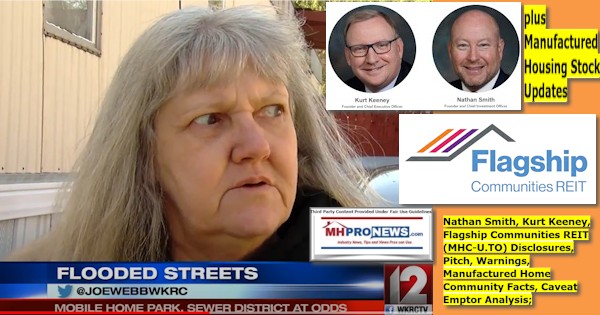


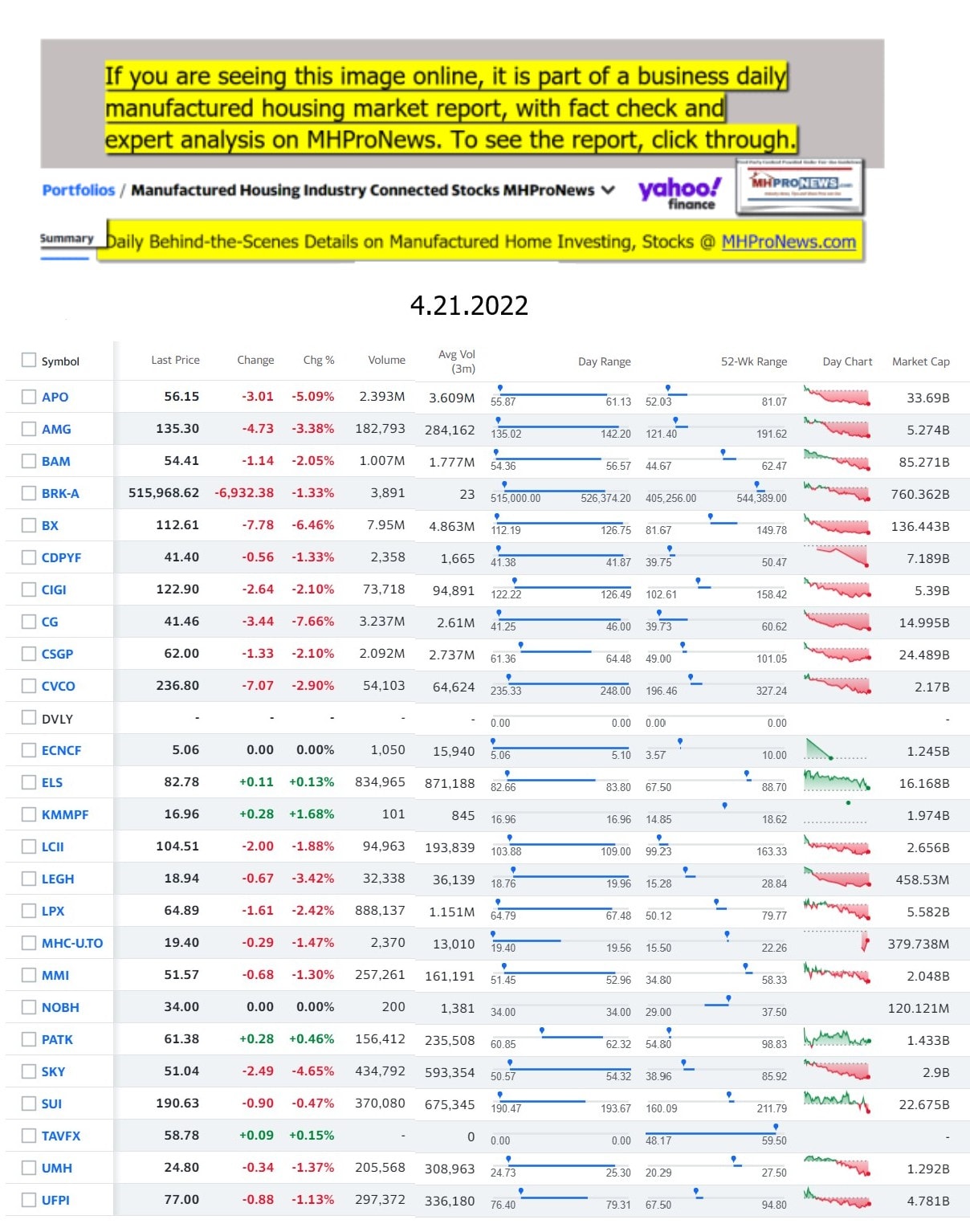
-
- 2022 …Berkshire Hathaway is the parent company to Clayton Homes, 21st Mortgage, Vanderbilt Mortgage and other factory-built housing industry suppliers.
· LCI Industries, Patrick, UFPI, and LP each are suppliers to the manufactured housing industry, among others.
· AMG, CG, and TAVFX have investments in manufactured housing related businesses. For insights from third-parties and clients about our publisher, click here.
Enjoy these ‘blast from the past’ comments. MHProNews. MHProNews – previously a.k.a. MHMSM.com – has celebrated our 11th year of publishing and have completed over a dozen years of serving the industry as the runaway most-read trade media.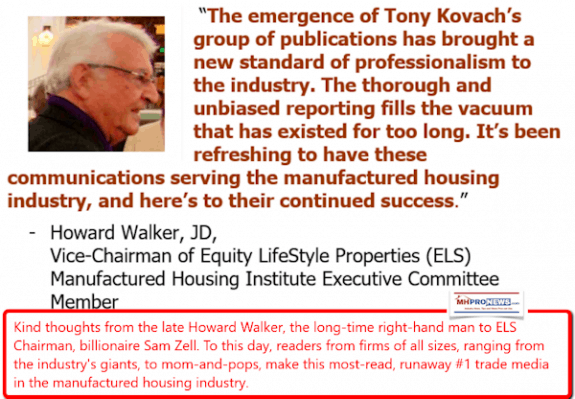
- 2022 …Berkshire Hathaway is the parent company to Clayton Homes, 21st Mortgage, Vanderbilt Mortgage and other factory-built housing industry suppliers.
Sample Kudos over the years…
It is now 12+ years and counting…
Learn more about our evolutionary journey as the industry’s leading trade media, at the report linked below.
· For expert manufactured housing business development or other professional services, click here.
· To sign up in seconds for our industry leading emailed headline news updates, click here.
Disclosure. MHProNews holds no positions in the stocks in this report.



That’s a wrap on this installment of “News Through the Lens of Manufactured Homes and Factory-Built Housing” © where “We Provide, You Decide.” © (Affordable housing, manufactured homes, stock, investing, data, metrics, reports, fact-checks, analysis, and commentary. Third-party images or content are provided under fair use guidelines for media.) (See Related Reports, further below. Text/image boxes often are hot-linked to other reports that can be access by clicking on them.)

By L.A. “Tony” Kovach – for MHProNews.
Tony earned a journalism scholarship along with numerous awards in history. There have been several awards and honors and also recognition in manufactured housing. For example, he earned the prestigious Lottinville Award in history from the University of Oklahoma, where he studied history and business management. He’s a managing member and co-founder of LifeStyle Factory Homes, LLC, the parent company to MHProNews, and MHLivingNews.com. This article reflects the LLC’s and/or the writer’s position and may or may not reflect the views of sponsors or supporters.

